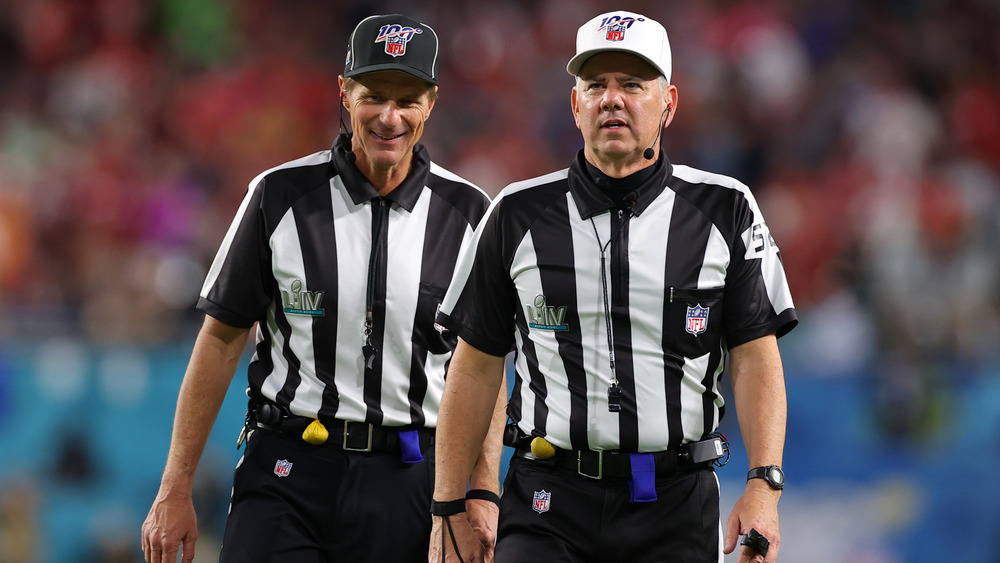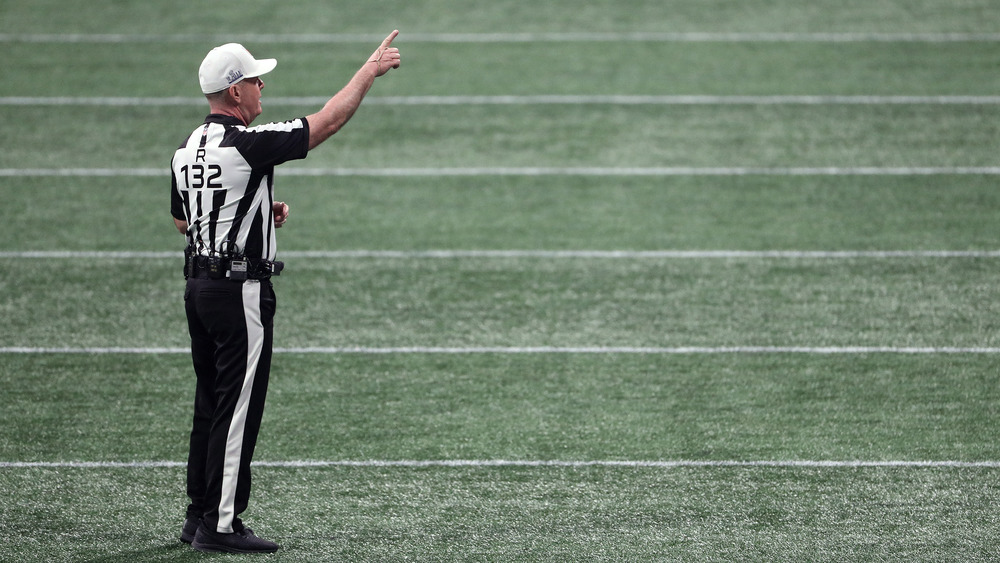Here's How Much Super Bowl Refs Really Get Paid
Football referees don't typically draw a lot of attention to themselves. It's not thought of as a particularly glamorous job, and they don't have a lot of individual name recognition, like big-name athletes do. You probably wouldn't recognize them on the street, but they play an essential role in the NFL. Their calls can change the direction of an entire game. It's a stressful, high-stakes job, but the individuals that do it are certainly paid accordingly.
According to a 2014 report by CBS, it was estimated that referees were paid between $4,000 and $10,000 per game, on average, in the regular season. For post-season games, including the Super Bowl, however, that payment can be bumped up to at least $11,900. As of 2019, a referee's average annual salary comes out to around $205,000, according to FanBuzz. Additionally, Super Bowl referees are eligible for bonuses, the amounts of which are kept even more secretive than their per-game paychecks.
Officiating for the NFL is a part-time job
Money reported that the bonus for working the 2001 Super Bowl was $11,900, and it likely would have grown significantly over the past 20 years, assuming the Super Bowl bonuses have followed the same trajectory as player bonuses and have retained a similar bonus-to-salary ratio. According to Sporting News, experts speculate the Super Bowl bonuses have been around the $40,000 range in recent years, and are expected to be even higher this year, though the actual numbers are "kept under lock and key" and "aren't readily available to the public."
Refs were also eligible to receive a defined-benefit pension plan through 2016, according to Money. Starting in 2017, the NFL switched from a pension plan to defined-contribution 401K plan, but they are still expected to receive generous partial matching contributions and an annual deposit of $18,000.
Their compensation is even more remarkable when you consider that most NFL officials already have full-time jobs, per CBS. Although it is an incredibly exclusive position, requiring a minimum of 10 years of college experience and the completion of physical and psychological aptitude tests, it is still only part-time, and many referees hold down a day job as well.
While they might not be pulling in the same multi-million dollar salaries as the famous professional athletes they work with, refereeing is certainly a lucrative career for those who have the chops to do it.

